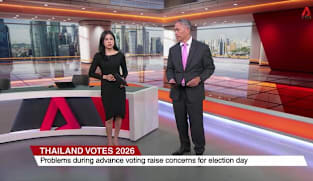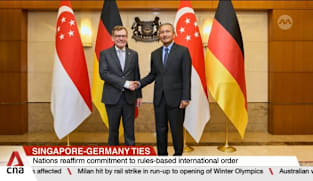Mark Lee on Insurance (Amendment) Bill
Businesses are watching closely to see how the Insurance (Amendment) Bill and similar regulatory actions will impact their ability to operate in Singapore, said NMP Mark Lee. In Parliament on Wednesday (Oct 16), he said the Government acknowledged that Income had fully disclosed details of the planned deal for Allianz to take a majority share, including potential future capital optimisation by the German insurer. Yet this was consequently met with intervention. Mr Lee asked - if businesses comply with full transparency but still face intervention, what incentive is there for them to continue to be transparent in future dealings? He also pointed to ambiguity in the Bill surrounding the term “public interest” and uncertainty around the Government’s expectations regarding Income’s social mission. Without clear markers, it is difficult for any organisation to construct a deal that aligns with both financial and social responsibilities, he said. Mr Lee said it is essential that Singapore continue to build on its commitment to transparency and trust between businesses and regulators that have enabled it to remain a competitive global hub. He made several suggestions. First, establishing clear markers at the outset of any major transaction, especially when significant public interest is involved. Second, getting relevant agencies involved earlier so they can flag potential deal-breakers sooner, enabling businesses to address concerns and avoid intervention. Third, giving businesses the opportunity to address and correct draft plans before final decisions or interventions are made.
Businesses are watching closely to see how the Insurance (Amendment) Bill and similar regulatory actions will impact their ability to operate in Singapore, said NMP Mark Lee. In Parliament on Wednesday (Oct 16), he said the Government acknowledged that Income had fully disclosed details of the planned deal for Allianz to take a majority share, including potential future capital optimisation by the German insurer. Yet this was consequently met with intervention. Mr Lee asked - if businesses comply with full transparency but still face intervention, what incentive is there for them to continue to be transparent in future dealings? He also pointed to ambiguity in the Bill surrounding the term “public interest” and uncertainty around the Government’s expectations regarding Income’s social mission. Without clear markers, it is difficult for any organisation to construct a deal that aligns with both financial and social responsibilities, he said. Mr Lee said it is essential that Singapore continue to build on its commitment to transparency and trust between businesses and regulators that have enabled it to remain a competitive global hub. He made several suggestions. First, establishing clear markers at the outset of any major transaction, especially when significant public interest is involved. Second, getting relevant agencies involved earlier so they can flag potential deal-breakers sooner, enabling businesses to address concerns and avoid intervention. Third, giving businesses the opportunity to address and correct draft plans before final decisions or interventions are made.



















